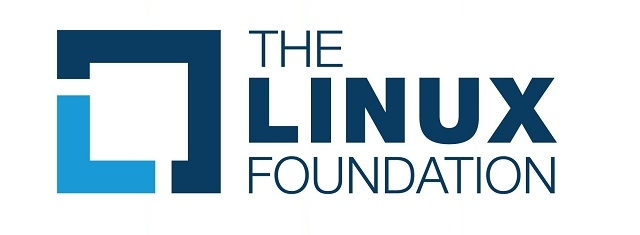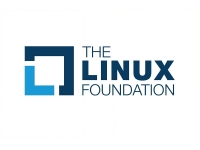Technology
The LINUX FOUNDATION Announces The ACUMOS AI CHALLENGE FOR DEVELOPERS
Artificial Intelligence Solutions

(Source: The Linux Foundation)
USPA NEWS -
The Linux Foundation, the Nonprofit Organization enabling Mass Innovation through Open Source, announced on May 31, the Acumos AI Challenge, sponsored by AT&T and Tech Mahindra. The Acumos AI Challenge is an Open Source Developer Competition seeking Innovative, Ground-Breaking Artificial Intelligence (AI) Solutions from Students, Developers, and Data Scientists. The Acumos AI Challenge will foster Development of AI Models for the Acumos AI Project, an AI project of The Linux Foundation and supported by The Linux Foundation's LF Deep Learning Foundation.
The Linux Foundation, the Nonprofit Organization enabling Mass Innovation through Open Source, announced on May 31, the Acumos AI Challenge, sponsored by AT&T and Tech Mahindra. The Acumos AI Challenge is an Open Source Developer Competition seeking Innovative, Ground-Breaking Artificial Intelligence (AI) Solutions from Students, Developers, and Data Scientists. The Acumos AI Challenge will foster Development of AI Models for the Acumos AI Project, an AI project of The Linux Foundation and supported by The Linux Foundation's LF Deep Learning Foundation.
AT&T and Tech Mahindra are awarding $100,000 in Prizes, as well as the Chance for Finalists to travel to San Francisco to pitch their Solutions during the Finals on September 11, 2018. All Eligible AI solutions will be available as Open Source in the Acumos Marketplace.
AT&T and Tech Mahindra are awarding $100,000 in Prizes, as well as the Chance for Finalists to travel to San Francisco to pitch their Solutions during the Finals on September 11, 2018. All Eligible AI solutions will be available as Open Source in the Acumos Marketplace.
The Acumos AI Project is a Federated Platform for managing AI and Machine Learning (ML) Applications and sharing AI Models. AT&T and Tech Mahindra contributed the Initial Acumos Code, now Freely available for Download, to the New LF Deep Learning Foundation, a Project of The Linux Foundation that supports Open Source Innovation in Artificial Intelligence, Machine Learning and Deep Learning. With the Acumos Platform, Developers and Data Scientists gain a New Industry Standard for making AI Applications and Models reusable and easily accessible.
The Acumos AI Challenge is seeking AI Solutions across all Uses Cases. Examples include, but are not limited to :
The Acumos AI Challenge is seeking AI Solutions across all Uses Cases. Examples include, but are not limited to :
* 5G & SDN ““ Apps that improve the Overall Performance and Efficiencies of 5G Networks and Software-Defined Networking.
* Media & Entertainment ““ AI Models targeting a Media or Entertainment Use Case. Examples include Solutions for Broadcast Media, Internet, Film, Social Media, Ad Campaign Analysis, Video and Image Recognition, Speech and Sound Recognition, Video Insight Tools and more.
* Security ““ AI Apps around Network Security Use Cases such as Advanced Threat Protection, Cyber Security, IoT Security, etc
* Enterprise Solutions ““ AI Models targeting an Enterprise Use Case, including Solutions for Automotive, Home Automation, Infrastructure and IoT.
The Top Three Teams will each receive $25,000 Cash, plus a Trip to the Finals in San Francisco in September. The Team that wins the Finale will take Home an additional $25,000 Grand Prize, for a Total of $50,000.
* Media & Entertainment ““ AI Models targeting a Media or Entertainment Use Case. Examples include Solutions for Broadcast Media, Internet, Film, Social Media, Ad Campaign Analysis, Video and Image Recognition, Speech and Sound Recognition, Video Insight Tools and more.
* Security ““ AI Apps around Network Security Use Cases such as Advanced Threat Protection, Cyber Security, IoT Security, etc
* Enterprise Solutions ““ AI Models targeting an Enterprise Use Case, including Solutions for Automotive, Home Automation, Infrastructure and IoT.
The Top Three Teams will each receive $25,000 Cash, plus a Trip to the Finals in San Francisco in September. The Team that wins the Finale will take Home an additional $25,000 Grand Prize, for a Total of $50,000.
The Acumos AI Challenge is accepting Submissions between May 31 - August 5, 2018. The Competition is open to U.S., District of Columbia and Puerto Rico Residents of a Majority Age. Teams are required to submit a Working AI Model, Test Dataset and a Demo Video under Three Minutes. Teams can register for the Challenge beginning May 31, 2018. They are encouraged to register early so that you can begin to plan and build your Solution and create your Demo Video.
The Linux Foundation is hosting the Acumos Platform and Acumos Marketplace and is focused on nurturing an Active, Large Community around the Project.
Source : The Linux Foundation
Ruby BIRD
http://www.portfolio.uspa24.com/
Yasmina BEDDOU
http://www.yasmina-beddou.uspa24.com/
The Linux Foundation is hosting the Acumos Platform and Acumos Marketplace and is focused on nurturing an Active, Large Community around the Project.
Source : The Linux Foundation
Ruby BIRD
http://www.portfolio.uspa24.com/
Yasmina BEDDOU
http://www.yasmina-beddou.uspa24.com/
Ruby Bird Yasmina Beddou Silicon Valley Innovative And Ground Breaking Artificial Intelligence Solutions The Linux Foundation Acumos Ai Challenge For Developers
Liability for this article lies with the author, who also holds the copyright. Editorial content from USPA may be quoted on other websites as long as the quote comprises no more than 5% of the entire text, is marked as such and the source is named (via hyperlink).






